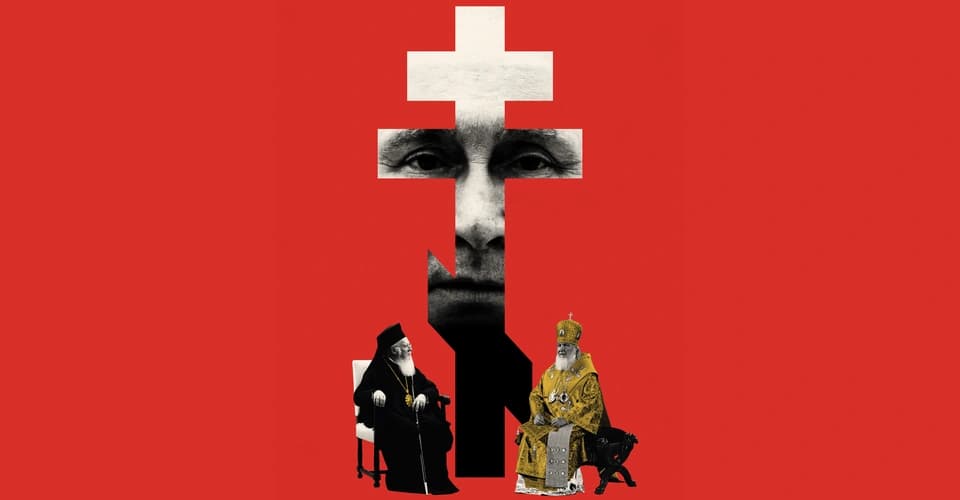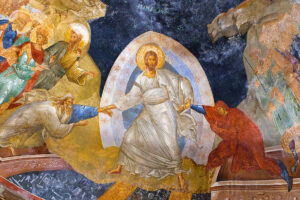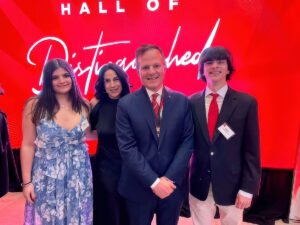By Robert F. Worth, The Atlantic
Must-read article for all Archons
‘Kirill is allowing himself to be a tool, to be an instrument of Putin’
–Ecumenical Patriarch Bartholomew
This extraordinary article from The Atlantic provides insight into some of the most important events in global Orthodoxy in recent years: Moscow Patriarch Kirill’s opposition to His All-Holiness Ecumenical Patriarch Bartholomew’s granting of autocephaly to the Ukrainian Orthodox Church; the Moscow Patriarchate’s rupture of communion with the Ecumenical Patriarchate; and the reasons why Vladimir Putin regards the autocephaly of the Orthodox Church in Ukraine as one of the pretexts for Russia’s aggression against that nation.
The veteran journalist Robert F. Worth interviewed both His All-Holiness and His Eminence Archbishop Elpidophoros at length, and even traveled to Mount Athos to gain a comprehensive understanding of these issues. In this article, he provides a unique and illuminating account of how the rift between Constantinople and Moscow developed, and what its ongoing implications are for the Orthodox Church and the world. He also interviews His Eminence Metropolitan Gregorios of Cameroon, who provides searing first-hand testimony to Russia’s uncanonical and vengeful encroachments into the Patriarchate of Alexandria after His Beatitude Pope Theodore II affirmed Ukraine autocephaly.
This article was the product of a long-term effort by our Archdiocesan Communications department, and hopefully will shed more light on our beloved Patriarch’s αγώνας.
This is a must-read for anyone who wishes to understand the controversies within the Church today, as well as the geopolitical situation regarding Russia, Ukraine and beyond.
In the Service of the Ecumenical Patriarchate,
Anthony J. Limberakis, MD
Archon Megas Aktouarios
National Commander
CLASH OF THE PATRIARCHS
A hard-line Russian bishop backed by the political might of the Kremlin could split the Orthodox Church in two.
By Robert F. Worth
In late august of 2018, Patriarch Kirill, the leader of the Russian Orthodox Church, flew from Moscow to Istanbul on an urgent mission. He brought with him an entourage—a dozen clerics, diplomats, and bodyguards—that made its way in a convoy to the Phanar, the Orthodox world’s equivalent of the Vatican, housed in a complex of buildings just off the Golden Horn waterway, on Istanbul’s European side.
Kirill was on his way to meet Ecumenical Patriarch Bartholomew, the archbishop of Constantinople and the most senior figure in the Orthodox Christian world. Kirill had heard that Bartholomew was preparing to cut Moscow’s ancient religious ties to Ukraine by recognizing a new and independent Orthodox Church in Kyiv. For Kirill and his de facto boss, Russian President Vladimir Putin, this posed an almost existential threat. Ukraine and its monasteries are the birthplace of the Russian Orthodox Church; both nations trace their spiritual and national origins to the Kyiv-based kingdom that was converted from paganism to Christianity about 1,000 years ago. If the Church in Ukraine succeeded in breaking away from the Russian Church, it would seriously weaken efforts to maintain what Putin has called a “Russian world” of influence in the old Soviet sphere. And the decision was in the hands of Bartholomew, the sole figure with the canonical authority to issue a “tomos of autocephaly” and thereby bless Ukraine’s declaration of religious independence.






